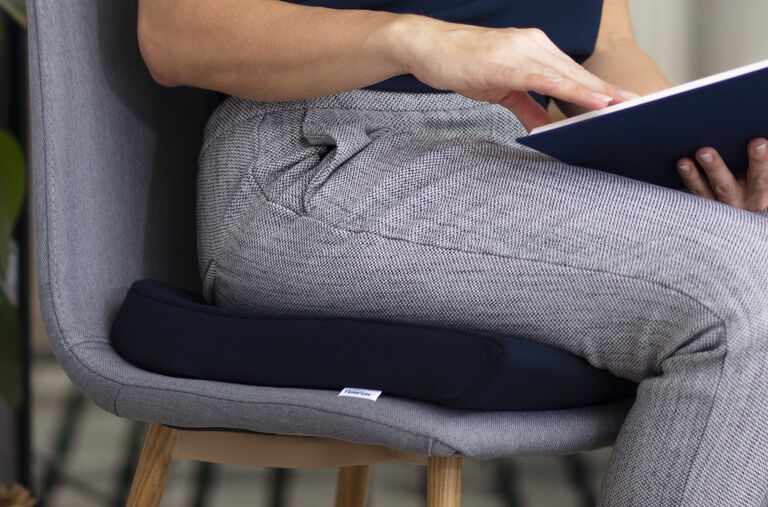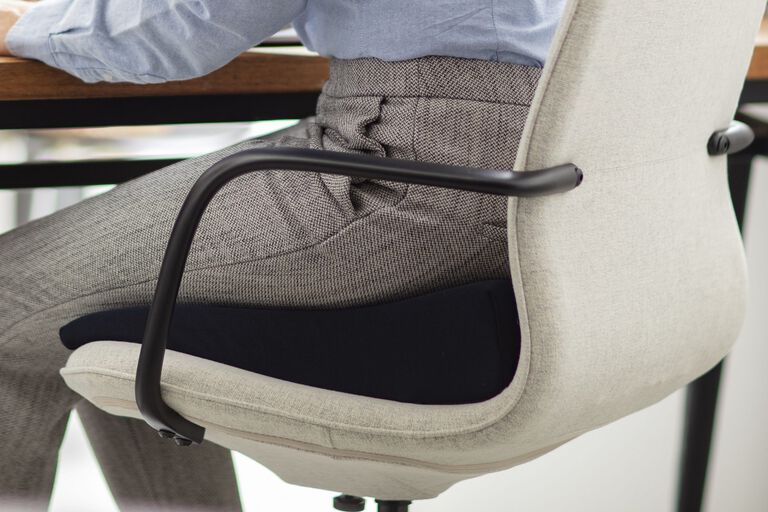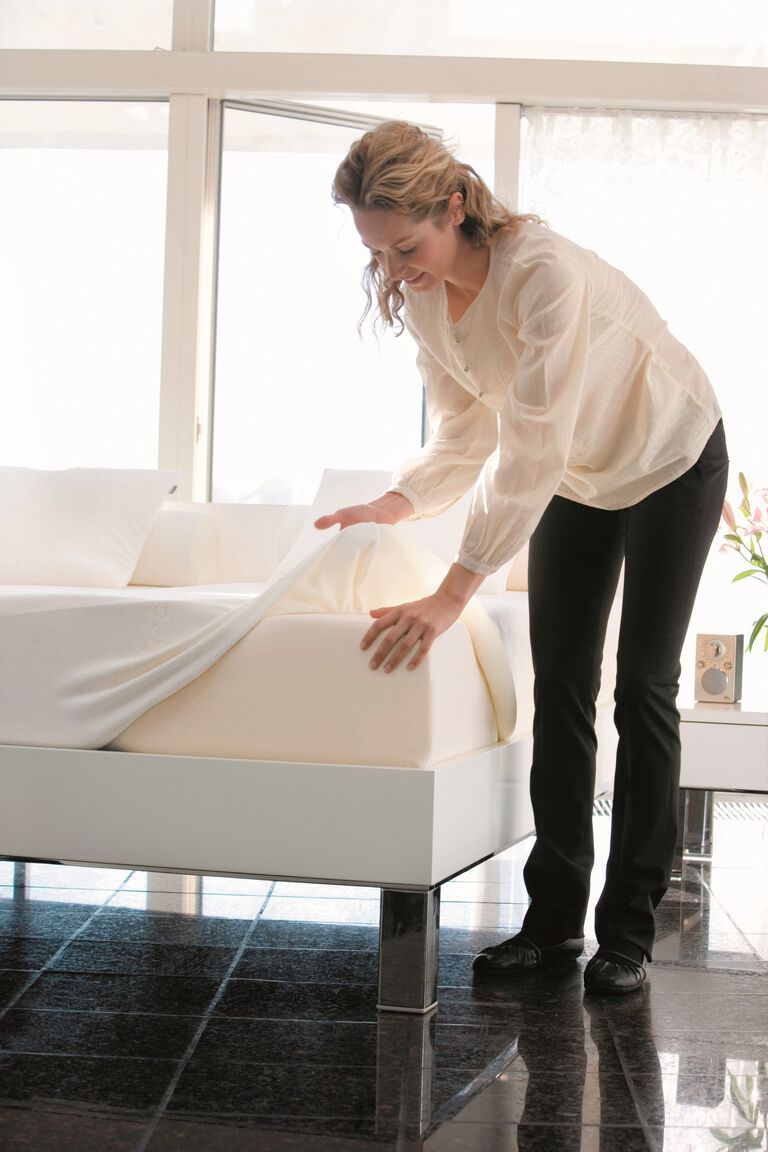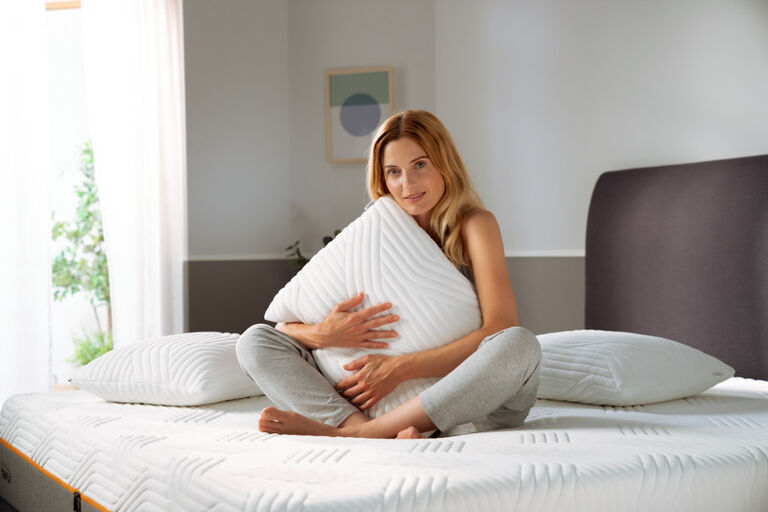IS WORKING FROM HOME AFFECTING YOUR SLEEP?
For some, working from home is the dream. Eat when you want, sleep when you want, work when you want. You can wear whatever you like, you don’t have a long, boring commute to contend with, and you don’t have to deal with all the noise and distraction that comes with working in an office. How could life possibly get any better?
As many of us are now finding out however, working from home is not quite as amazing as we thought it would be. Some find the temptation of the television too much to handle. Others have problems with procrastination, filling their days with visits to the kitchen and dawdling over their To-Do list. Sleep can also be an issue, either as a result of not getting enough exercise or not being able to switch off.

Learning how to work at home is a process. If you want to make it work for you, it’s important to understand where you’re going wrong – and what you can do about it. In this post, we’re going to look at how to set up a home office, to then focus on making sure your sleep is not affected by your new working from home arrangements.
HOW DO I ORGANISE A HOME OFFICE?
How you set up your home office will have a huge impact on how well you adapt to working from home. While there is no such thing as the ‘perfect home office’, there are some ways you can make your workspace perfect for you. Here are some important factors to keep in mind to ensure your ergonomic requirements and work needs are met day-to-day.
1. CHAIR
Opt for a clerical-type office chair that is fully adjustable and well padded, has a five-star base for stability, and a seat short enough that it allows you to get full back support without the front edge of the seat pushing into the backs of your legs. You should learn how to adjust your chair so that you are fully supported.

2. DESK:
When sitting at your desk, your elbows should comfortably rest at desk height, while you sit on your chair with your back straight, your knees bent at a 90-degree angle, and your feet flat on the floor. Keep the area under your desk clutter-free.
3. TECH:
Avoid using a laptop on its own. Create a set-up that has a separate screen, keyboard and mouse, and set each up according to ergonomic requirements. It’s also a good idea to go hands-free if you are using a phone for work. Your neck and back will not thank you if you constantly cradle your phone between your ear and shoulder.
4. ENVIRONMENT:
Your workspace should be evenly lit. Avoid facing a screen with bright daylight behind it. In terms of temperature, this should be comfortable enough that you are not aware of it being too hot or too cold.
The TEMPUR® Home and Travel collection has been developed to help you enjoy a comfortable lifestyle whether you are at work, travelling or in the comfort of your own home.
For enhanced comfort and pressure relief whilst sitting at your desk the TEMPUR® Home and Travel collection consists of:

HOW TO AVOID PROBLEMS WITH SLEEP WHEN WORKING FROM HOME
Working from home can cause all kinds of problems when it comes to sleep. So, what can you do to ensure you still get a good night’s sleep now that you work remotely?
1. Take Regular Breaks
Sitting down all day isn’t good for the mind or the body. Be sure to take regular breaks to get your muscles moving and your blood circulating. Aside from making you feel better during the day, this should also help you avoid aches and pains that prevent sleep at night.
2. Exercise
Working from home can result in you forgetting to exercise, which can impact your sleep. You may not realise just how much exercise you used to get from walking around the office, going to get lunch, or doing your daily commute. With the gym no longer an option, you will need to make a conscious effort to exercise, which in turn, should help regulate your sleep.
3. Watch What You Eat
When you’re bored or procrastinating, snacking can become a problem. However, what you eat can affect your sleep, especially if you eat too much junk food or sugar. Drinking too much caffeine – or having too many post-work drinks – can also be detrimental to sleep. Be aware of what you’re consuming, especially in the hours before bed.
4. Switch Off
When you work from home, lines can easily become blurred between personal and professional. This makes switching off for sleep harder. Try to set hours for work, just as you would in an office setting. Outside of work hours, leave work behind and turn your attention to winding down. It’s also a good idea to avoid late night screen time if you want to improve your sleep quality.
5. Create A Routine
Working from home gives you a certain amount of freedom. However, without a routine, you may find sleep hard to come by. Try to keep office hours as regular as possible, and if you do feel the need to nap, make it short and not too late in the day.
6. Get Outdoors
We need daylight to regulate our circadian rhythm. If we don’t spend enough time outdoors, it impacts our sleep cycle, so be sure to get out and about each day.
WHAT IF YOUR HOME OFFICE IS YOUR BEDROOM?
Not everyone has sufficient space at home to create a full home office. For some, their bedroom will double as their office. If this is the case, what can you do to ensure your work does not encroach on your ability to sleep well?
1. Avoid Working On Your Bed
While your bed may be comfortable, it is not a workspace. Not only will working on your bed make naps more tempting, it will also affect your neck and back, which may create problems later down the line.
2. Set Office Hours
Decide on your office hours and keep to them. Avoid answering work emails and doing spreadsheets late into the night, and cut screen time to minimum in the hours before bed. It can also be helpful to get dressed for work each day to get you in the right frame of mind.
3. Reduce Clutter
Clutter is a distraction for both work and sleep. Try to keep clutter to a minimum, and reduce the amount of paper sitting on your desk. If it has been sitting there a while, it’s likely to be full of dust and dust mites, which for some people can trigger serious allergies and asthma.
Feel it for yourself
Find a Tempur store or Stockist and try out our range of mattresses for yourself



